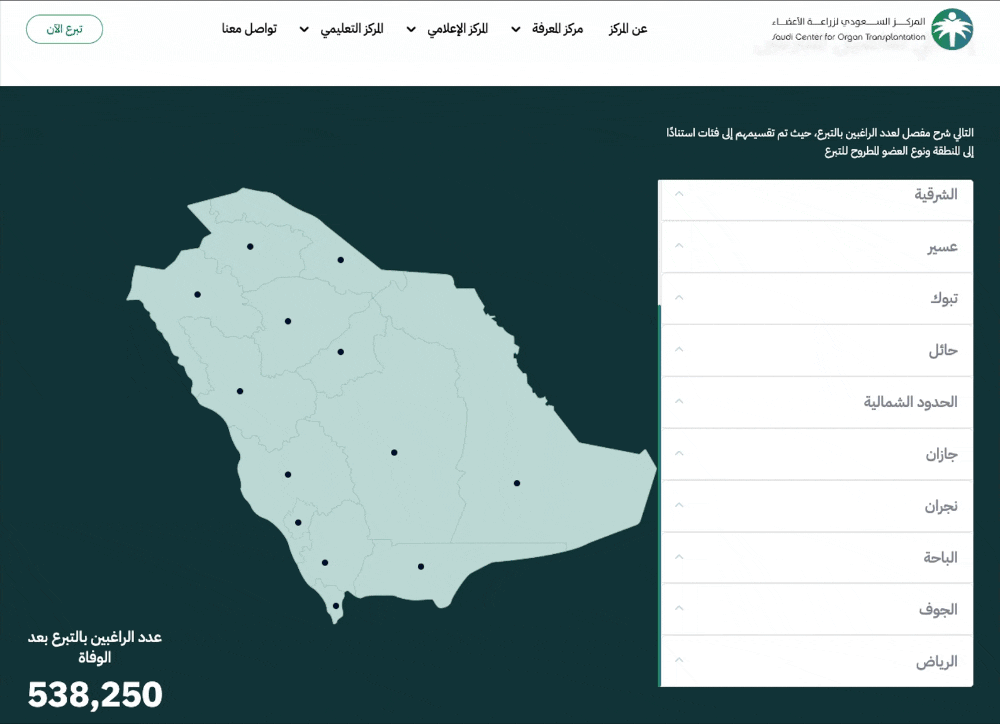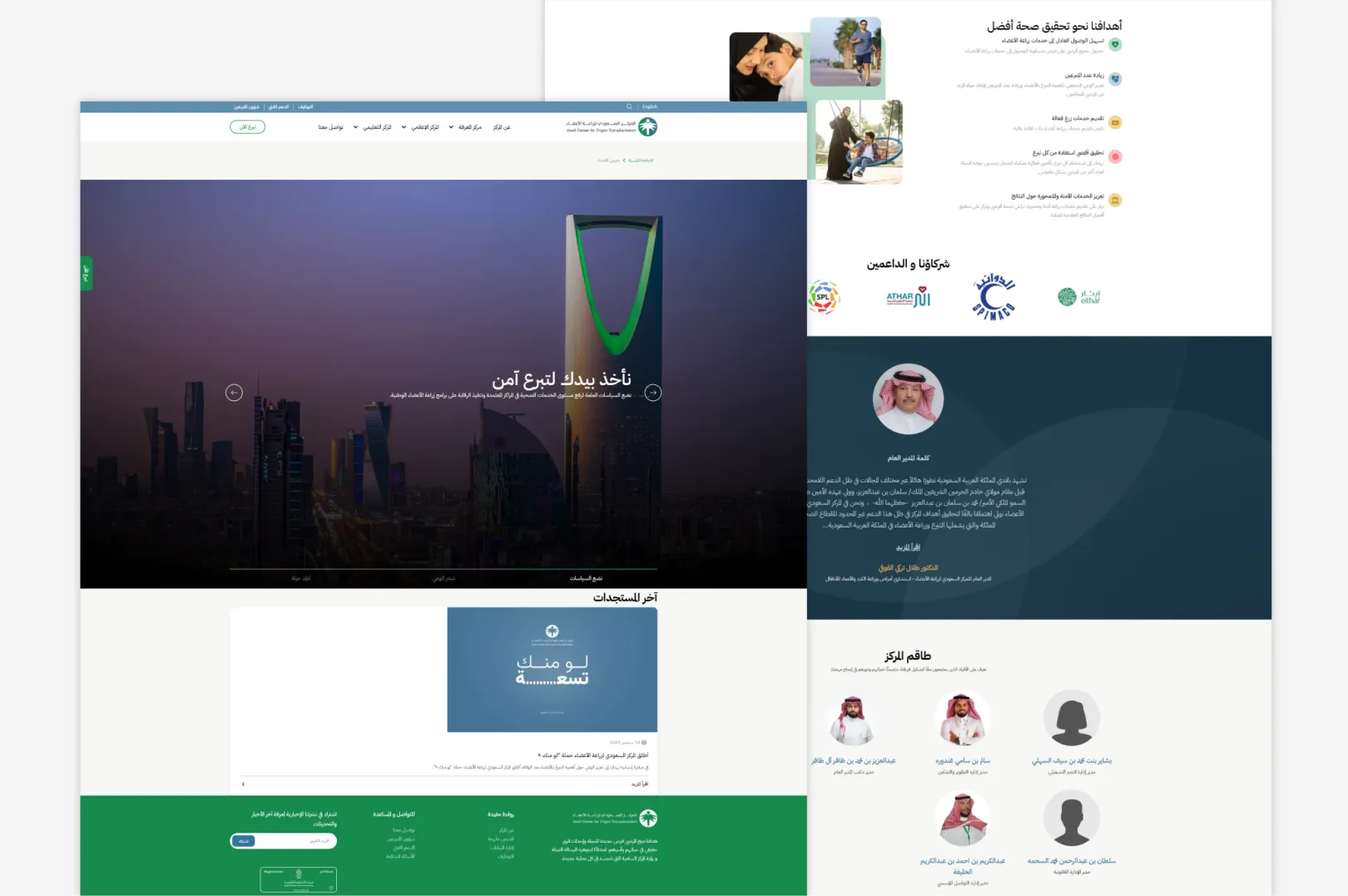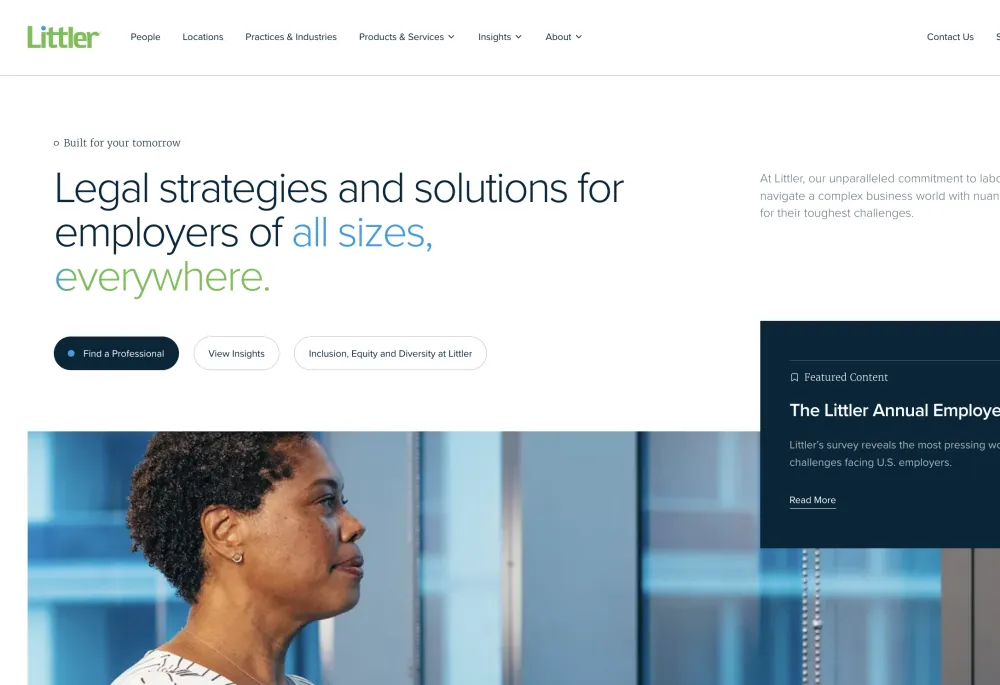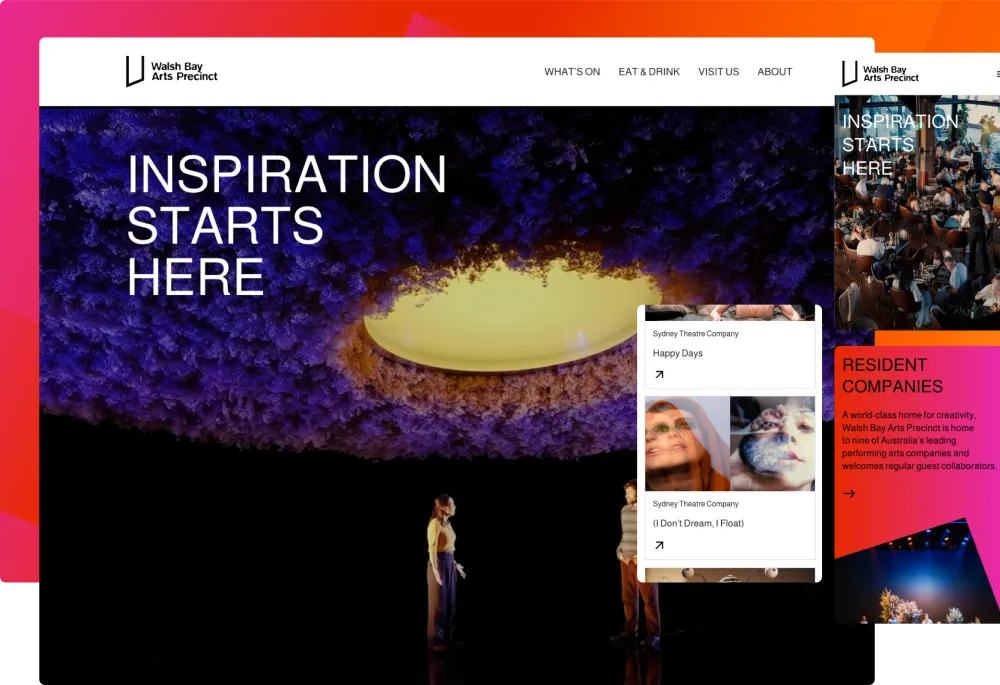The Saudi Center for Organ Transplantation is a national institution specializing in organizing and developing the provision of organ donation and transplantation services in the Kingdom of Saudi Arabia. It oversees organ donation and transplantation programs and centers. The center's roles and tasks extend to include awareness and education among all community members and healthcare practitioners in the health sectors.
About the project
Sprintive leveraged Drupal for the Saudi Center for Organ Transplantation website, meeting complex needs, enabling multilingual support, ensuring security, and integrating with existing systems, resulting in a user-friendly platform for organ donation services.
Integration with Tawakkalna Application:
Implement an interactive map on the website integrated with the Tawakkalna application. This map displays the number of donors from various governorates within Saudi Arabia, with real-time data updates to ensure accuracy and transparency, and to encourage people to register and donate their organs.

Management of Donations at Donor Hospitals:
Developing an interface for hospitals to manage donations effectively through the website. This interface enables hospitals to get the donor certificate promptly upon the donor's passing, facilitating efficient record-keeping and coordination with the transplantation center, and streamlining the documentation process for organ donation.
Implementation of Secure Three-Tier Architecture:
Establishing a robust three-tier architecture with stringent security measures. This architecture ensures the confidentiality, integrity, and availability of data by segregating the presentation, application logic, and data layers. In addition to implementing encryption, firewalls, and access controls to protect the system against potential threats.
Back to topWhy Drupal was chosen
Security Features:
-
Granular User Permissions: Drupal allows fine-grained control over user roles and permissions, ensuring that only authorized personnel can access certain functionalities and data.
- Security Updates and Audits: Drupal has a dedicated security team that regularly releases updates and patches. It also undergoes third-party security audits, providing an additional layer of trust.
- Database Encryption and Secure Authentication: Drupal supports encryption for sensitive data, such as patient records, both in transit and at rest. It also integrates with secure authentication methods like two-factor authentication (2FA) and OAuth.
- Role-Based Access Control (RBAC): This feature limits user access based on their roles in the organization, ensuring that healthcare professionals only see data relevant to their responsibilities, which is crucial for protecting sensitive medical data.
High Availability:
- Modular Architecture: Drupal’s modular architecture allows for better scalability and flexibility in a 3-tier architecture (Presentation, Application, and Database tiers), ensuring that each layer is highly available and can be managed independently.
- API-First Approach: Drupal’s API-first architecture facilitates seamless integration with external systems such as Electronic Health Records (EHR), and donations systems through RESTful APIs.
Integration with 3rd party systems using government service bus:
- Interoperability: Drupal supports interoperability standards allowing it to exchange data with healthcare systems, improving care coordination and ensuring patient data flows securely between systems.
- Logging and Monitoring: Drupal has strong logging and monitoring capabilities, making it easy to track system activities and user access, crucial for auditing and compliance with healthcare regulations.
- Data Privacy and Patient Consent: The platform offers tools for managing patient consent and privacy, ensuring that healthcare providers can maintain the confidentiality of sensitive information.

Technical Specifications
Drupal version:
Key modules/theme/distribution used:




